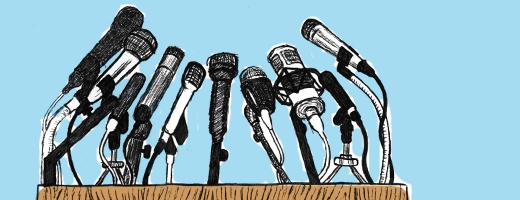Fourteen years ago today, I hopped off the school bus after a long day of first grade. I was anxious to tell my mom about how strange it had been.
During the morning announcements, our principal stopped talking for a while. She called it a “moment of silence.” My teacher seemed tense too. While we were reading, I saw her hunched over at her desk. She looked like she was crying. I looked forward to watching PBS Kids at lunch time, but all of the TVs in the cafeteria were turned off without explanation. Throughout the day, everyone seemed to shift in their seats and speak in hushed tones – especially the adults. By the sound of the final bell, I was ready to go home.
“Mo-ooom!” I yelled when I opened the front door. No answer.
I swung my Powder Puff Girls backpack off my shoulder and walked into the living room. My mom was standing there, eyes glued to the TV screen.
“Mom?”
When she turned around, I discovered that she had been crying too. “Oh, you’re home already? I guess I’ve been watching the news all day. . .”
“Mom, what’s wrong?”
I averted my gaze to the images behind her. There was a building on fire and smoke everywhere.
Don’t buildings catch on fire all the time? I thought to my six year-old self. Surely, that couldn’t be the reason why everyone was so distraught.
My mom sat me down and began talking about plane crashes, which seemed irrelevant at the time. Then out of the corner of my eye, I watched the building on fire fall to the ground in a pillar of ash and dust. Little did I know, there had previously been two.
In the fourteen years since I first witnessed the terrorist attacks of 9/11, I have seen that footage a countless number of times. To this day, it still sends a chill up my spine.
It is strange to me that my little brother (who was born in 2003) will have no recollection of this defining moment in our nation’s history. He won’t hear the lyrics to “Courtesy of the Red, White, and Blue” and experience an unexplainable wave of patriotism. He won’t recall picking our dad up from the airport right at the gates. He’s never lived in this country during a time of peace.
It is strange to me that there is an entire generation of young people who have come to understand the ramifications of our nation’s conflicts in the Middle East as a simple fact of life.
Yet every year on September 11th, we remember the pain of a wound that has yet to heal. We remember great loss and great sacrifice. We remember mothers and fathers, sons and daughters, all of whom were taken too soon. We remember so that those who perished will not have lost their lives in vain.
In light of this, I can’t help but wonder how much we’ve forgotten.








